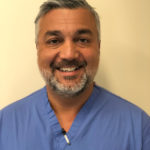 We are human and we err. As a clinician we will face clinical errors which cause a patient to come to harm. We pass that information and learning on to our trainees and maybe present the case at a teaching session, but how does the information about that clinical error get disseminated further?
We are human and we err. As a clinician we will face clinical errors which cause a patient to come to harm. We pass that information and learning on to our trainees and maybe present the case at a teaching session, but how does the information about that clinical error get disseminated further?
When a clinical error occurs, and a patient comes to harm, the patient and their relatives receive an explanation and an apology, but they also want to know it will never happen again. The cause of the error is investigated locally, and changes made in that hospital. But that learning point is not even disseminated to the hospital trust 10 miles down the road, let alone to the wider NHS. The same avoidable clinical errors are happening again and again.
NHS Improvements (NHSI) does excellent work in detecting and implementing learning strategies that address system errors and serious incidents that result in death or serious harm, but fails to address lesser avoidable clinical errors. Front line clinicians are key stakeholders in patient safety and they need to be involved in the detection and reporting of clinical errors, but also in the assessment of these errors, identification of common themes and learning points, and the subsequent dissemination to other clinicians who need to hear these safety messages.
Around 2,000,000 incident reports are received each year. Of those 30,000 are serious incidents. There are also 200 “dives” which look at approximately 20,000 lower harm incidents. Taking out these 50,000 incidents which are scrutinised, there are 1,950,000 incidents reported per year that receive no scrutiny outside the reporting Trust. This means that 97.5% of all clinical incident reports are not scrutinised and those potential learning points are missed. [data from NHS Improvements]
The key to resolving this is identifying these learning opportunities. Currently the NHSI does not have the resources to assess every clinical error. We need a mechanism of identifying which incident reports have a clinical learning message and targeting those for particular attention. Rather than scrutinise them after the fact, the logical route is to ask those clinicians/allied professionals submitting incident reports to identify if there is a clinical learning point, thereby flagging up their importance, so they can be singled out for special scrutiny and any learning points picked up.
These potential learning points could then be scrutinised by a fellow clinician in that specific field.
How should this valuable and patient centred information be disseminated? The Colleges play a vital role, but there is inconsistency in the delivery. Not everyone is a College member. Do we accept that those clinicians are bypassed and do not receive learning messages?
Another potential solution is to share these learning points via email. All clinicians have emails and we are inundated with messages about innumerable topics, so overload is of course a concern. However, patient safety messages are arguably the most important messages we will receive and thus, surely, they should be given appropriate prominence and appropriate attention? One way to do this would be to have a dedicated email sent out to clinicians with patient safety messages. These messages would be related to harm that has already occurred to patients in that clinicians field, that have been reported and flagged as avoidable clinical error, that have been read and considered by a fellow senior clinician in the same field, and where it was felt that there was a valid learning point. I believe it would be a duty of care for doctors to read these and learn from them. Rather than be overburdened by a scatter gun approach, doctors would receive messages which could directly help them prevent clinical errors, harm, and potential litigation.
We could have a system monitored and facilitated by the Royal Colleges, but with a direct feed to all clinicians. It could take the form of a quarterly patient safety email with points for practice reflection. Discussing these as part of the appraisal process would cement learning.
We need a robust and consistent process in place to detect repeated clinical errors, develop learning points for those errors, and then make sure they are securely, reliably, and consistently disseminated to frontline clinicians.
Amar Alwitry is a Consultant Ophthalmologist working in the East Midlands. He has a Masters in Medical Law and is working with NHS Resolutions to facilitate Learning from Litigation.
Competing interests: I am working with NHS Resolutions on developing pathways for learning from medicolegal cases. Jeremy Hunt wished to employ me part time to undertake this work and I hope the new SoS will do similar. I am medicolegal editor for EyeNews. No financial interests to declare.
